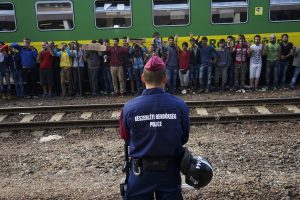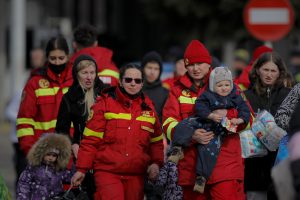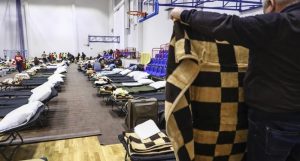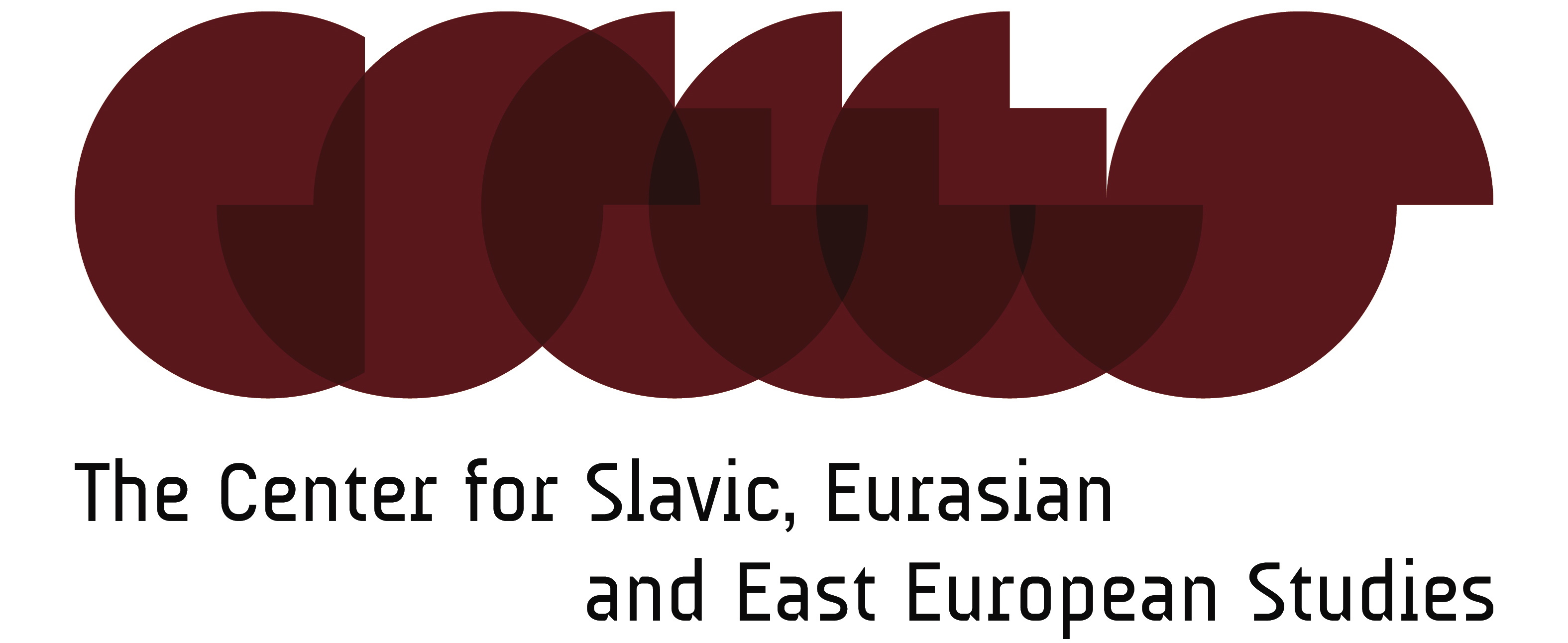By Jessie Barton Hronešová
Marie Curie-Sklodowska Fellow, Center for European Studies, University of North Carolina at Chapel Hill
In 2015, at the height of the ‘migration crisis’ in Europe, Poland, Hungary, the Czech Republic and Slovakia, among others, were clear on one thing – they will not accept refugees/migrants and would keep their borders shut. Anti-immigration rhetoric subsequently became a pillar of right-wing populism across Europe. The rejection of refugees was especially surprising in countries whose populations were in the past on the other side of the equation – escaping oppressive regimes. Rather than greeting fleeing Syrians and Afghans with empathy, they were met with rejection, apprehension and a dehumanizing language. ‘Have Eastern Europeans no shame?’ a prominent Polish historian living in the USA Jan Gross asked then.

Fast-forward to February 2022. The very same borders are wide open for all those fleeing Ukraine, no questions asked. In an unprecedented outpouring of solidarity, governments drop visa restrictions, citizens organize charity donations, open their homes for fleeing Ukrainians and local businesses send equipment and aid. The universal empathy and condemnation of Russian invasion of Ukraine from Moldova to Poland immediately after the first Russian troops crossed Ukrainian is unequivocal. Countries where refugees became a key reason for populist mobilization are now advocates of open-border policies for Ukrainians, putting the restrictive asylum systems of the UK and the USA to shame.
How can we explain this change of heart?
From the western perspective, the answer must surely be the shock of a war erupting in Europe, the intensive coverage in the media and social networks and the extraordinary valiance of the Ukrainians and their President. Social media channels are flooded with heart-breaking but also heroic images from Ukraine, a country that aspires to become a member of the European Union. Tellingly, Western journalistic reporting on the war has repeatedly stressed how ‘shocking’ it is to see a war in Europe, in a ‘civilized’ place like Ukraine.
From the perspective of the Global South, this is part of the answer – as other wars are dehumanized and racialized, a European war and its refugees are welcomed through an application of double standards and discriminatory policies towards ‘others’. As reports of a racial selection of refugees emerge, this view is only reinforced. So the answer must be that eastern Europe is committing the same crime as the west always has been by taking in only non-Muslim and white refugees.
There is some truth in both of these arguments. Yet the view from the east of Europe is much more complex, multilayered and primarily down to a sense of familiarity both with the conflict and its actors as well as the refugees fleeing from it. This familiarity manifests itself through three interlinked empathy mobilizers while unfamiliarity is indeed obvious through a dehumanizing approach to other refugees.

First, of course, Ukraine is geographically and ‘culturally’ close and so is the war. Refugees are no longer crossing continents but several hundred miles. Budapest is mere 358 miles from Lviv. ‘What’s next? Where will Putin stop?’, asked a Czech weekly after the invasion. The conflict has disturbed a sense complacency that wars in ‘our’ part of the world are a matter of the past. But many people also know Ukrainians personally due to their widespread diaspora and, in many cases, can understand Ukrainian because of its Slavic roots. Yet while the proximity of Ukraine may explain the fear and ability to empathize better, a brutal war ranging on the European south-eastern flank in Yugoslavia in the early 1990s led to a much more restrained public response.
Ukraine’s plight resonates more potently because of the second mobilizer, the clear political dynamics of this conflict that, at the same time, follows a pattern that is much more understandable and straightforward for the wider population. The identity of the aggressor is well-known and menacing, and the refugee is the indisputable victim. It is easy to pick a side. Unlike the complex Syrian, Afghan, Iraqi or even Yugoslav conflicts, east Europeans feel they can ‘understand’ the dynamics of this conflict much better. This time around, not a single serious media in the region would make claims to ‘all parties are equally guilty’ as was the case in the Yugoslav wars. (The only exception is Serbia, whose historical suspicion of the west, inability to come to terms with the 1999 NATO bombing and the loss of Kosovo animates a wealth of theories of how Russia was provoked, and to a much smaller degree autocratic Hungary).
The regional history of victimization by powerful states as a third empathy mobilizer contributes to a sense of déjà vu, when the region acted as a buffer between historical German, Ottoman and Russian imperialism that subsequently resulted in wars, territorial grabs and human suffering, especially in the eastern notorious ‘bloodlands’. Local and international media often compare the invasion of Ukraine to the German takeover of Central Europe in 1939, noting a dangerous premonition that history repeats itself. While Germany is no longer perceived as a regional threat, Russia has never ceased to be.

The obvious will of Vladimir Putin to re-create the Russian Empire as outlined in his speech sounds not only alarming to the older generations but revives traumatic memories when many of the small countries in the region were either attacked or subjugated by the Kremlin. Tanks rolling into Kyiv bring back images of the Soviet army on the stress of Prague in 1968 as well as the brutal suppression of the Hungarian Uprising in 1956, among other bloody defeats of protests in Poland. (Again, Serbia is an outlier here, where the comparison made domestically is with the 1999 NATO bombing). Even some of the strongest apologists of the Kremlin such as Viktor Orbán of Hungary and Miloš Zeman, the Czech President, quickly swerved on their positions and renounced Vladimir Putin, whom they defended until a few days prior to the invasion. Even in traditionally Russophile Bulgaria, popularity of Putin dropped from 58% to 32% (still too high a number) between March 2020 and March 2022. Paradoxically, the direct attack on a sovereign country has re-united Eastern Europe against the Kremlin.
Sadly, the Global South argument of racializing and orientalizing refugees rings true too. According to the 2018 Pew Research, only 12% of Czechs, 21% of Hungarians and 33% of Poles would be willing to accept a Muslim as a family member in contrast to 80% of Swedes and 66% of French. European Value Survey data also shows how anti-Muslim sentiment has grown since 2015. (There are higher levels of tolerance in the Western Balkans due to its own Muslim population). A Eurobarometer survey from 2019 showed that compared to Western Europe, EU member states in the east are, unfortunately, more racist. As some research suggests, “the most tolerant Eastern European country would be one of the more intolerant countries if compared to the Western European countries”. It is indeed hard to imagine the same enthusiasm to shelter Muslim refugees by the majority of the local populations.
It is clearly difficult to overgeneralize about the ‘eastern’ welcome of refugees as there is a great variation across eastern Europe. However, there are some common empathy mobilizers, and a dehumanizer in the case of orientalizing refugees, that need to be set in the wider historical context. The general sense of familiarity, déjà vu, and premonition that Ukraine may be just the beginning of something much larger holds more weight in explaining the opening of homes and hearts than arguments about a ‘European’ war and white refugees. Having said that, othering non-white and non-Christian refugees has been rather common too. There has been fear of the unknown wars and refugees from countries that east Europeans perceive as remote and, unfortunately, learn close to nothing about. But this time around, fear has mobilized in a different way. There is a palpable sense of fear of the Kremlin across most of the region based on some historical and personal experiences and empathy with those fleeing a naked invasion. The recent U-turn in refugee welcome must be applauded and perceived as a regional response to a menacing threat even if we cannot lose sight of the underlying racial and orientalizing undertones of the refugee empathy mobilization across the region.

